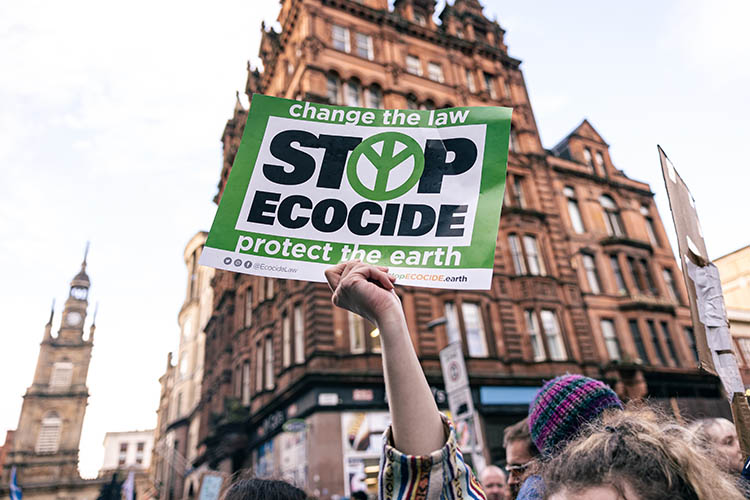
The country is the first in Europe to recognise ecocide as a crime at both national and international levels
By
The Belgian Federal Parliament voted today in favour of a revised penal code that makes ecocide punishable at both national and international levels, making the country the first European nation to recognise ecocide under international law.
‘Belgium is now at the forefront of a truly global conversation around criminalising the most severe harms to nature and must continue to advocate for the recognition of ecocide at the International Criminal Court, alongside genocide,’ says Patricia Willocq, Director of Stop Ecocide Belgium. ‘In order to fully protect nature, it is necessary that those that would wilfully destroy vast swathes of the natural world, in turn causing untold human harm, should be criminalised.’
Nationally, the new crime, which is aimed at preventing and punishing the most severe cases of environmental degradation (such as extensive oil spills), will apply to individuals in the highest positions of decision-making power and to corporations. The punishment for individuals may include up to 20 years in prison, while corporations could face fines of up to €1.6 million. In addition, Belgium now recognises ecocide as a fifth ‘international crime’ after war crimes, crimes of aggression, crimes against humanity and genocide.
At 2021’s COP26 in Glasgow, the world’s first global citizen’s assembly put forth its view that international courts should recognise ecocide, and the European Union has encouraged its Member States to campaign for its recognition within international courts.
‘There is real momentum growing around the ecocide law conversation at every level currently,’ says Jojo Mehta, CEO and co-founder of Stop Ecocide International. ‘We’ve seen a growing list of states take concrete steps towards establishing new domestic crimes of ecocide in the last year, including the Netherlands, Scotland, Mexico, Brazil, England, Italy and Spain. I have no doubt we’ll see international recognition in the near future.’




